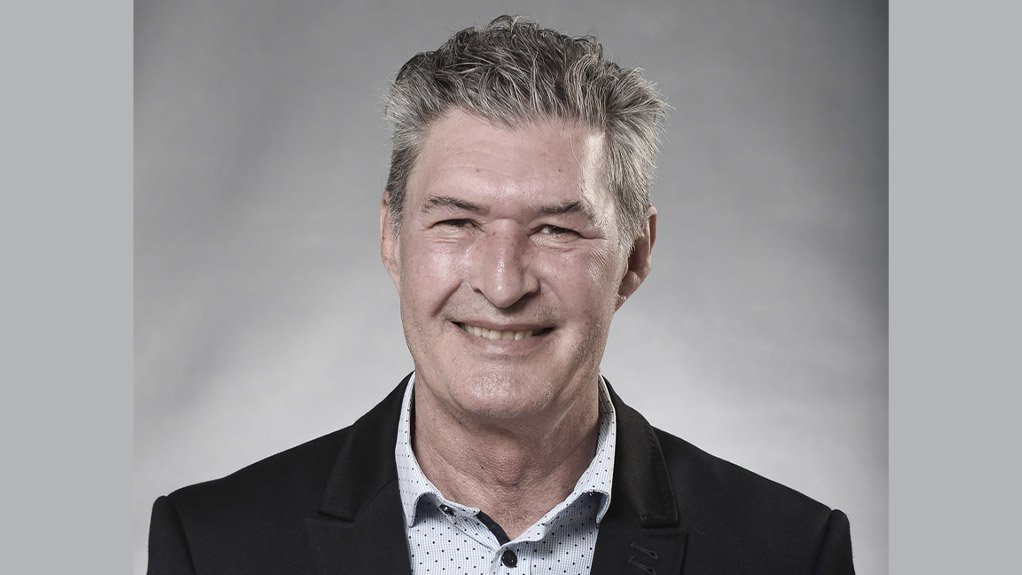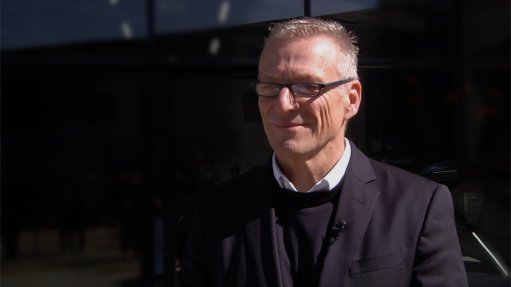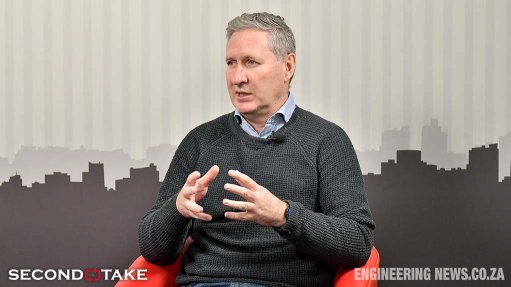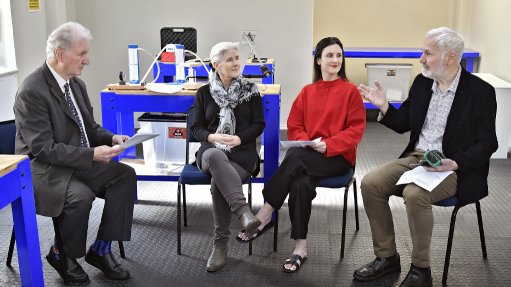Rethinking healthcare infrastructure: why SA needs a stronger focus on risk management and cost control
This article has been supplied and will be available for a limited time only on this website.
South Africa’s healthcare system is at a crossroads. On one hand, there is a growing demand for accessible, high-quality care. On the other, the infrastructure meant to deliver that care is under increasing pressure from budget constraints and regulatory complexity to ageing facilities and growing patient loads. Amid this reality, there’s a pressing need to shift the national conversation from simply building more hospitals to ensuring they are well planned, well built and well maintained.
Robert Palmer, Head of Professional Services at Afroteq, believes the time has come for more intelligent, proactive management of healthcare facilities - both in the public and private sectors. “The question isn't just how much we're spending, but how we're spending it,” he explains.
Overview of Quantity Surveyors in Health Care
Palmer explains that quantity surveyors play a vital role in the health care sector by ensuring that construction and infrastructure projects related to hospitals, clinics, and medical facilities are delivered within budget, on time, and to the required standards. Their expertise in cost management and project control is particularly important in the health care industry, where financial resources must be carefully managed without compromising patient care or safety.
“From the early stages of feasibility studies to post-construction audits, quantity surveyors help health authorities make informed financial decisions and maintain fiscal accountability throughout the project lifecycle,” he says.
More Than Bricks and Mortar
Hospital construction and upgrades are some of the most complex infrastructure undertakings any country can face. In South Africa, projects often need to be carried out in live environments where construction teams are required to work in and around functioning wards and intensive care units without disrupting critical care. These are not typical building sites; they are spaces where lives are at stake every day.
Says Palmer: “A hospital is not your regular construction project. The design, cost and risk considerations are completely different. You’re not just delivering a building - you’re delivering a space that needs to function flawlessly in moments of crisis.”
In health care construction, quantity surveyors are responsible for a range of tasks, including preparing cost estimates, managing tender processes and advising on procurement strategies. They work closely with architects, engineers, and health care planners to ensure that the design and materials selected meet health standards and are cost-effective. Their role often extends to value engineering, where they identify areas to reduce costs without affecting the quality of care environments. Additionally, they monitor expenditure, track variations and ensure compliance with regulatory standards - critical in a sector that is highly regulated and where operational continuity during construction is essential.
Impact on Long-Term Health Infrastructure Sustainability
Beyond individual projects, quantity surveyors contribute to the long-term sustainability of health care infrastructure. They help health care organisations plan for future needs by assessing life-cycle costs, advising on the maintenance of assets, and supporting investment decisions. In public health systems, where accountability and transparency are paramount, their detailed reporting and cost analysis help build trust with stakeholders and the public. Their role is increasingly important in integrating new technologies and sustainable building practices into health care facilities, aligning financial planning with broader goals such as environmental sustainability and digital transformation.
A Call for Smart Investment
To create resilient, patient-centred healthcare systems, South Africa must treat infrastructure not as a sunk cost, but as a strategic asset. That means putting skilled professionals at the table early. These include quantity surveyors, architects and engineers who understand the long game of healthcare delivery.
Palmer advocates for a more collaborative approach: “We need to move away from the cycle of building under pressure, then scrambling to fix what was missed. Risk, value and compliance cannot be treated as afterthoughts. They must shape the project from day one.”
Technology and data also have a key role to play. Digital cost modelling, real-time monitoring, and predictive maintenance systems offer enormous potential, but only if they are embedded in the project strategy from the start.
Context-Specific Solutions
What works in a Johannesburg private clinic won’t necessarily translate to a rural district hospital in the Eastern Cape. Effective project delivery demands contextual understanding, i.e. of the health system, the community and the operational realities.
Palmer warns against a one-size-fits-all mindset: “Healthcare is hyper-local. A one-day delay in opening a rural maternity ward doesn’t just affect a balance sheet. It affects whether or not a mother gives birth safely. That’s the level of responsibility we’re dealing with.”
Building for the Future, Not Just the Present
South Africa’s healthcare infrastructure needs to be agile, capable of responding to pandemics, adapting to new technologies and serving diverse populations for generations to come. This requires long-term thinking, data-driven planning and strong governance over every rand spent.
Quantity surveying is not just a financial role – it is a strategic lever for national wellbeing. The true value lies in the ability to align budgets with outcomes, to manage complexity with precision, and to ensure that every hospital built is a promise kept to the communities it serves.
“Every hospital project should be measured not just by when it opens, but by how well it works, and how long it endures. That’s what real value looks like,” concludes Palmer.
Comments
Press Office
Announcements
What's On
Subscribe to improve your user experience...
Option 1 (equivalent of R125 a month):
Receive a weekly copy of Creamer Media's Engineering News & Mining Weekly magazine
(print copy for those in South Africa and e-magazine for those outside of South Africa)
Receive daily email newsletters
Access to full search results
Access archive of magazine back copies
Access to Projects in Progress
Access to ONE Research Report of your choice in PDF format
Option 2 (equivalent of R375 a month):
All benefits from Option 1
PLUS
Access to Creamer Media's Research Channel Africa for ALL Research Reports, in PDF format, on various industrial and mining sectors
including Electricity; Water; Energy Transition; Hydrogen; Roads, Rail and Ports; Coal; Gold; Platinum; Battery Metals; etc.
Already a subscriber?
Forgotten your password?
Receive weekly copy of Creamer Media's Engineering News & Mining Weekly magazine (print copy for those in South Africa and e-magazine for those outside of South Africa)
➕
Recieve daily email newsletters
➕
Access to full search results
➕
Access archive of magazine back copies
➕
Access to Projects in Progress
➕
Access to ONE Research Report of your choice in PDF format
RESEARCH CHANNEL AFRICA
R4500 (equivalent of R375 a month)
SUBSCRIBEAll benefits from Option 1
➕
Access to Creamer Media's Research Channel Africa for ALL Research Reports on various industrial and mining sectors, in PDF format, including on:
Electricity
➕
Water
➕
Energy Transition
➕
Hydrogen
➕
Roads, Rail and Ports
➕
Coal
➕
Gold
➕
Platinum
➕
Battery Metals
➕
etc.
Receive all benefits from Option 1 or Option 2 delivered to numerous people at your company
➕
Multiple User names and Passwords for simultaneous log-ins
➕
Intranet integration access to all in your organisation





















